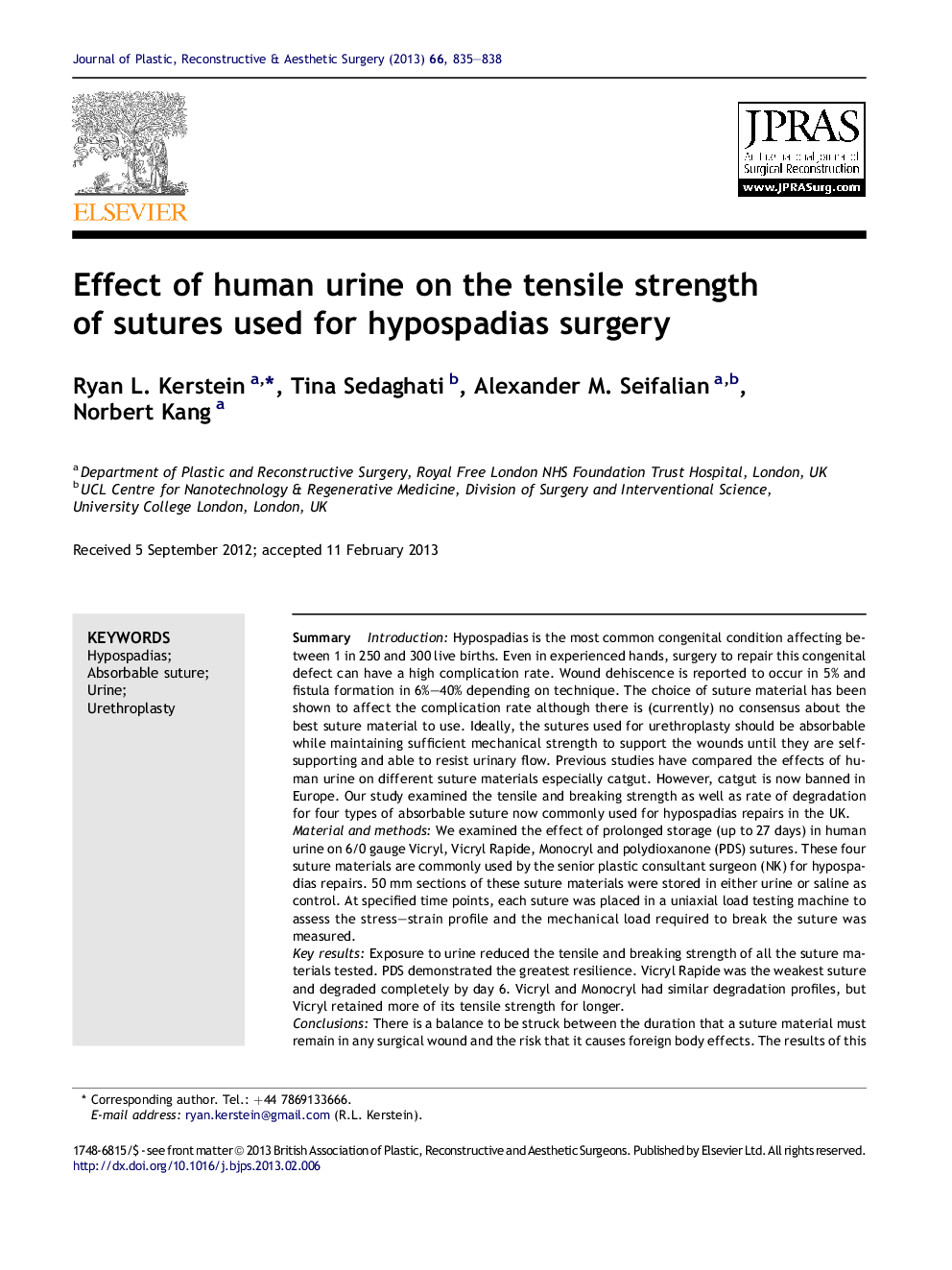| کد مقاله | کد نشریه | سال انتشار | مقاله انگلیسی | نسخه تمام متن |
|---|---|---|---|---|
| 4117724 | 1270314 | 2013 | 4 صفحه PDF | دانلود رایگان |

SummaryIntroductionHypospadias is the most common congenital condition affecting between 1 in 250 and 300 live births. Even in experienced hands, surgery to repair this congenital defect can have a high complication rate. Wound dehiscence is reported to occur in 5% and fistula formation in 6%–40% depending on technique. The choice of suture material has been shown to affect the complication rate although there is (currently) no consensus about the best suture material to use. Ideally, the sutures used for urethroplasty should be absorbable while maintaining sufficient mechanical strength to support the wounds until they are self-supporting and able to resist urinary flow. Previous studies have compared the effects of human urine on different suture materials especially catgut. However, catgut is now banned in Europe. Our study examined the tensile and breaking strength as well as rate of degradation for four types of absorbable suture now commonly used for hypospadias repairs in the UK.Material and methodsWe examined the effect of prolonged storage (up to 27 days) in human urine on 6/0 gauge Vicryl, Vicryl Rapide, Monocryl and polydioxanone (PDS) sutures. These four suture materials are commonly used by the senior plastic consultant surgeon (NK) for hypospadias repairs. 50 mm sections of these suture materials were stored in either urine or saline as control. At specified time points, each suture was placed in a uniaxial load testing machine to assess the stress–strain profile and the mechanical load required to break the suture was measured.Key resultsExposure to urine reduced the tensile and breaking strength of all the suture materials tested. PDS demonstrated the greatest resilience. Vicryl Rapide was the weakest suture and degraded completely by day 6. Vicryl and Monocryl had similar degradation profiles, but Vicryl retained more of its tensile strength for longer.ConclusionsThere is a balance to be struck between the duration that a suture material must remain in any surgical wound and the risk that it causes foreign body effects. The results of this study suggest that Vicryl has the best characteristics for urethroplasty of the four suture materials tested.
Journal: Journal of Plastic, Reconstructive & Aesthetic Surgery - Volume 66, Issue 6, June 2013, Pages 835–838